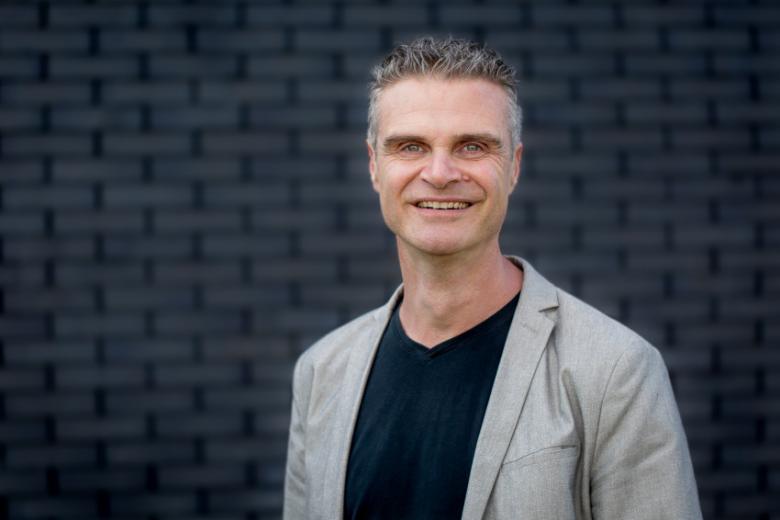UM Star Lectures 2025
Maastricht University is brimming with knowledge and innovative ideas, and we’re excited to share them with you. Even though you might not walk our halls anymore, we’re keen to stay connected. That’s why on Thursday evening, 13 March 2025, we’re bringing the university to you!
We’ll send 12 of our professors to 12 different cities across Europe for an evening of lifelong learning, stimulating ideas, and networking. It’s your chance to dive into a diversity of topics, reconnect with fellow alumni, and enjoy some drinks together.
What to expect
The evening will begin with inspiring lectures from 19:30 to 20:30, where UM professors will deliver thought-provoking talks designed to spark curiosity and engage your mind. Each lecture offers a unique opportunity to delve into fascinating topics and take part in meaningful discussions.
Afterwards, from 20:30 to 22:00, it’s time to connect with fellow alumni over drinks and snacks. This relaxed networking session is a chance to share memories, make new connections, and unwind in good company.
Details
- Date: Thursday 13 March 2025
Programme:
19:00 – 19:30 Walk-in and registration
19:30 – 20:30 UM Star Lecture
20:30 – 22:00 Networking drinks- Locations: Amsterdam - Berlin - Brussels (FULL) - Cologne - Düsseldorf - Eindhoven - Frankfurt - London - Maastricht - Munich - The Hague - Zürich. View all the locations
- Tickets: € 10 p.p.*
*Proceeds from the ticket sales will support the Equity and Inclusion Programme of the University Fund Limburg. This programme provides scholarships for underprivileged youth and promotes equality initiatives at UM.
Important Notes
- All of the lectures will be in English.
- This event is exclusively for UM alumni, but you’re welcome to bring a non-alumni guest. If you would like to bring a guest, please indicate this in the registration form. If your guest is also a UM alumnus, they need to register separately.
- Please note that a photographer and/or videographer may be present. By attending, you agree to the use of photos and videos in UM’s communication channels. If you have concerns, don’t hesitate to reach out to us.
We're excited to see you in one of these 12 cities for an evening of interesting ideas, meaningful connections, and great conversation. We look forward to a memorable night!
Speakers & Location
Prof. Dr. Christine Neuhold | FASoS
Different shades of crisis and their effects on the EU
The EU has been confronted with different crises over the past decades; reaching from the financial crisis to the Covid Pandemic. These very different phenomena have however been labelled with the the same label: crisis. This is where this Star Lecture comes in. First we will try to unpack the term crisis. What are its main features? We will discuss to what extent one crisis is not like another. This then raises the question how the EU has dealt with different crises and how this has affected the EU system of governance (differently).
About Christine Neuhold
Christine Neuhold is full Professor of EU Democratic Governance. She is Dean of the Faculty of Arts and Social Sciences (FASoS) at Maastricht University (UM). She holds a PhD in Political Science from the University of Vienna. She has been teaching widely on issues of European integration both at the UM and beyond. She has held several managerial positions at FASoS, reaching from Director of Studies of the Bachelor European Studies to the Head of the Politics department. Her research focuses on questions of accountability and processes of governance within the European Union in times of change and crisis.
Location
betahaus | Urban
Urbanstraße 71
10967 Berlin, Germany
Google Maps
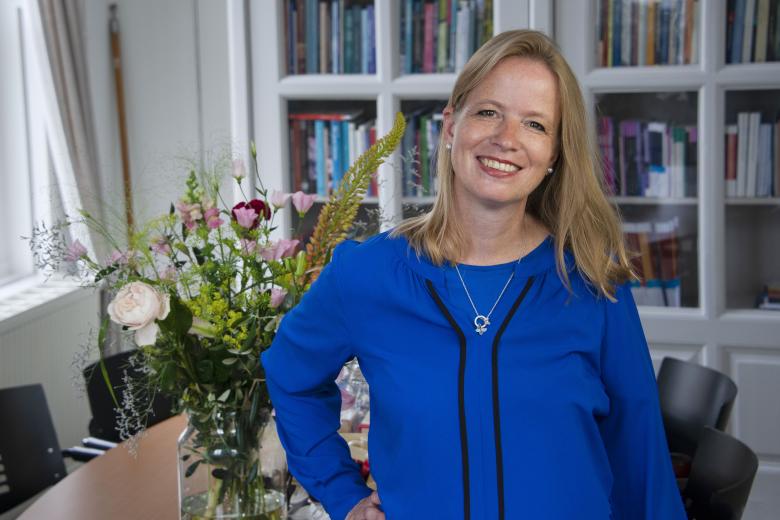
Prof. Dr. Marjan Peeters | FoL
The European Green Deal: only a Green Dream?
Von der Leyen’s first European Commission set out an unprecedented legislative programme to green the European Union. This resulted in the adoption of an impressive package of new environmental obligations not only for businesses and households in the European Union but also targeting harmful activities in third countries. Indeed, legislation has been the main tool for implementing green policy objectives such as “do no (significant) harm”. This lecture will highlight some innovations in the European environmental acquis, together with some critical reflections including the complexity of implementation. Moreover, can the rule of law prevent backsliding in environmental ambition?
About Marjan Peeters
Marjan Peeters is Professor of Environmental Policy and Law at the Law Faculty of Maastricht University. She teaches master-courses in Global and European Environmental Law. Previously, Marjan worked as an environmental lawyer at the Dutch Ministry responsible for Water Management. Her research has always focused on how environmental protection can be effectively and efficiently achieved with law. Core research topics are the market-based instrument of “emissions trading” and “environmental procedural rights”. She has co-edited, among others, the Research Handbook on EU environmental law; her current project examines the European Green Deal from a Rule of Law perspective.
Location
UM Brussels Hub
Avenue des Arts 47
1000 Brussels
Google Maps
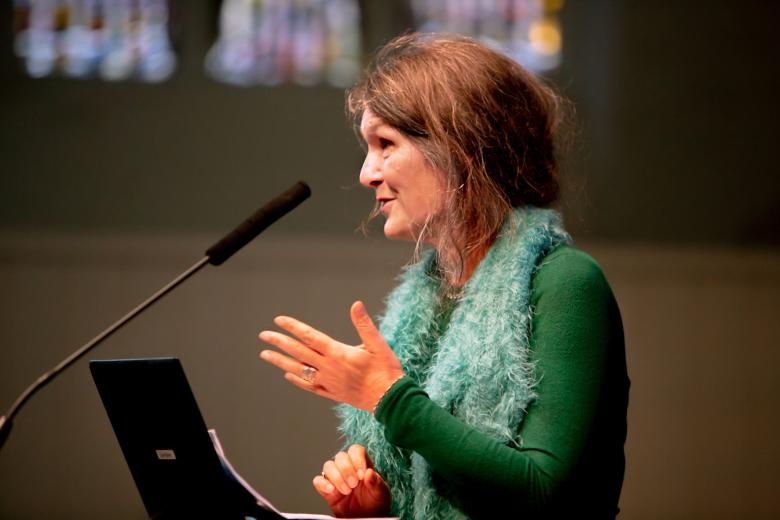
Prof. Dr. Frank Thuijsman | FSE
Game Theory at Work
Over the past 100 years, Game Theory has found more and more applications in our society. We will take you on a personal road trip from the very basic theoretical models to applications in, for example, bankruptcy, kidney donations, crime fighting, cancer treatment, ecology, and AI. While doing so, we will address the work of several world famous scientists, and we will highlight some books and movies as well. Finally, it also relates to talent development and establishing sustainable university-employer partnerships.
No specific prior knowledge is required to follow this talk; you should all be fine.
About Frank Thuijsman
Frank Thuijsman is a full professor of Strategic Optimization and Data Science at the Department of Advanced Computing Sciences. He is the secretary and treasurer of the Game Theory Society. He had visiting positions in Los Angeles and in Jerusalem and he has published on Game Theory in a wide range of domains. In 2014 he launched KE@Work. In this honors program, the best BSc students Data Science and Artificial Intelligence (formerly Knowledge Engineering) combine their studies with a 2-year challenging assignment at a nearby business. Over 200 students and over 70 businesses have participated thus far.
Location
Startplatz
Im Mediapark 5
50670 Köln
Google Maps

Prof. Dr. Dominik Mahr | SBE
Digital Realities– the value of “false” realities
Extended Reality (XR) builds digital layers onto the physical world (e.g., Augmented Reality) or immerses us in entirely new worlds (e.g., Virtual Reality). AI has elevated XR to new heights, blending physical and digital elements and creating new use cases in healthcare, education, customer service, innovation management, or HR. This lecture shows that digital realities are most valuable when they create unknown, diverse realities and loose restrictions of the physical world.
In his interactive lecture, Dominik Mahr will share UM’s DEXLab research demonstrating XR’s impact on social interaction and organizations. Collectively, you will apply a framework to challenge assumptions about the physical world and understand the value of “false” experiences. Dominik invites you to discuss ambitions and concerns around XR in light of your own experiences and current societal development.
About Dominik Mahr
Dominik Mahr is a Professor of Digital Innovation & Marketing, the Scientific Director of UMIO Innovate, and co-founder of the Digital Experience Lab (DEXLab) and the Maastricht Center for Robots at Maastricht University. His research focuses on the human side of digitalization—examining the implications of digital data, devices, and technologies for users, organizations, and society—and has been published in leading scientific journals and books. His key works include Extended Reality, Service Robots, Digital Voice, Ecosystems, AI Bots, and other emerging tech in various industries, for which he has received multiple awards for education, impact, and research.
He is passionate about creating synergies between research, education, and practice to deliver impact for society at large. Before embarking on his academic career, he worked in the automotive and high-tech industries.
Location
TechHub.K67
Kasernenstraße 67
40213 Düsseldorf
Google Maps
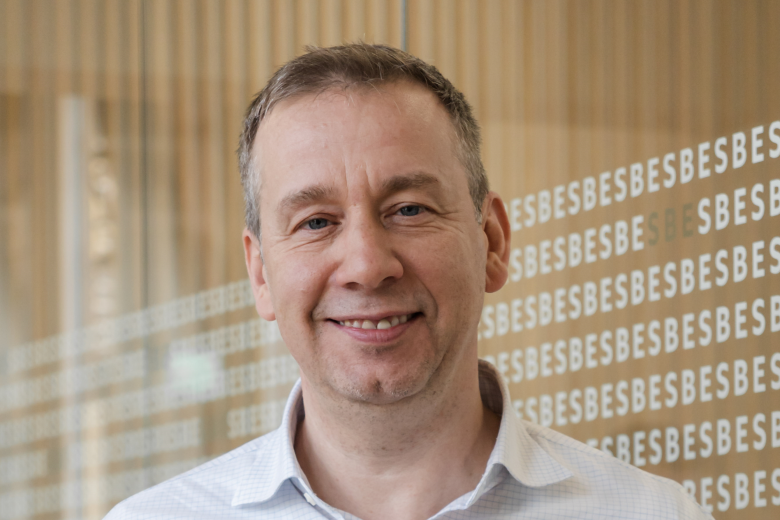
Prof. Dr. Ir. Joost Lumens | FHML
Virtual hearts of real patients: from simulation to healthcare innovation
Ever wondered how Formula 1 teams perfect their race strategies and accelerate car development? Just as F1 engineers use digital twins to test and innovate their cars before they hit the track, we're revolutionizing cardiac care through virtual hearts. Professor Lumens reveals how their CircAdapt technology is used to create digital twins of patients' hearts, enabling physicians to safely explore and optimize treatments in a virtual environment, leading to personalized therapies that better match each patient's needs. Ready to discover how this simulation-based innovation is transforming cardiovascular medicine, making personalized heart care a reality?
About Joost Lumens
Prof. Joost Lumens is a biomedical engineer leading a research group operating at the intersection of biomedical engineering and cardiology. As Professor of Computational Cardiology at Maastricht University and Maastricht UMC+, he heads the Division Heart of CARIM, one of Europe's premier cardiovascular research institutes. His team combines advanced computational modeling with clinical research to gain new insights into cardiovascular diseases and their treatments. Their influential work regularly appears in leading clinical cardiology journals. Despite his training as engineer, Prof. Lumens has held several leadership positions within the European Society of Cardiology and currently serves as deputy editor of the European Heart Journal – Digital Health.
Location
The Social Hub Eindhoven
Stationsweg 1
5611 AA Eindhoven
Google Maps
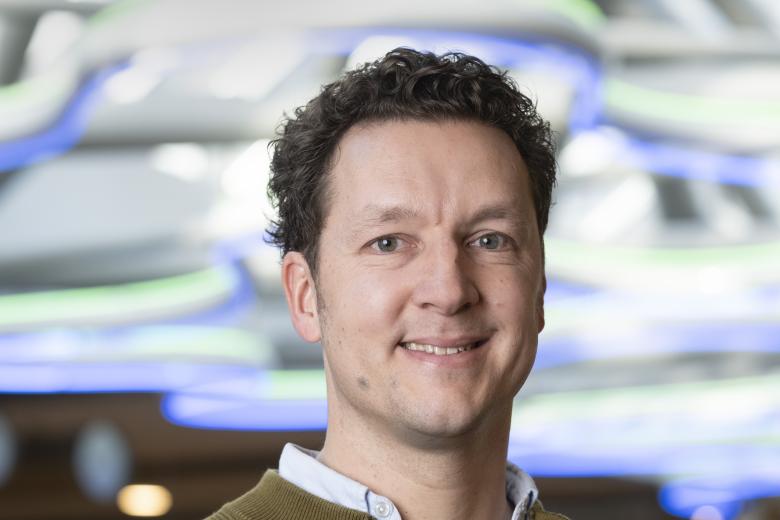
Prof. Dr. Edward Huizenga | SBE/UMIO
The Leadership Lab: Prove them wrong, redefine success and lead the future
What’s in it for you?
- Insights you haven’t heard before
- A science-backed toolkit to thrive (or survive) in the chaotic, AI-confused organisation of the year 2025
- How to start changing your work-world, one step at a time
Let’s start by challenging outdated business norms, half-truths, biases and self-doubts. Then, join me on a no-nonsense journey, made personal and forward-looking. As we dive into the power of behavioural science and transformative leadership, to balance the demands of productivity, empathy, and constant change.
This Star Lecture takes you on a quest to slay zombie ideas, that despite having been thoroughly contested and disproven, continue wreaking organisations. Together, we will redefine leadership, master change and unlock purpose, all whilst unapologetically keeping people and sustainable practices at the core of your strategy.
Filled with examples, tools and actionable takeaways, this session is your evening highlight, if you are the leader willing to walk new paths with confidence and clarity.
About Edward Huizenga
Edward Huizenga is among Europe’s top experts in strategy and behavior change. As an Endowed Professor at UMIO | School of Business and Economics Maastricht University, he shares his in-depth expertise with future leaders. In 2024, he was awarded the prestigious Business Achievement Award by Beta Gamma Sigma, for his work in his field.
As a managing partner at strategy consultancy Benthurst & Co, with offices in Amsterdam, Brussels and Zurich, he advises top global companies including Roche, Randstad, DSM-Firmenich, Allianz and Diversey. He is accomplished author on strategy and transformation and is the driving force behind Handwashing Angels, a social impact initiative that transforms children’s education and hygiene in Kenya, Uganda and India.
He is a lecturer at Executive MBA programmes at UMIO SBE Maastricht University, the University of Amsterdam and NTU Singapore. Edward Huizenga is the strategic partner that every professional wants to have in their network.
Location
TechQuartier
Platz d. Einheit 2
60327 Frankfurt am Main
Google Maps
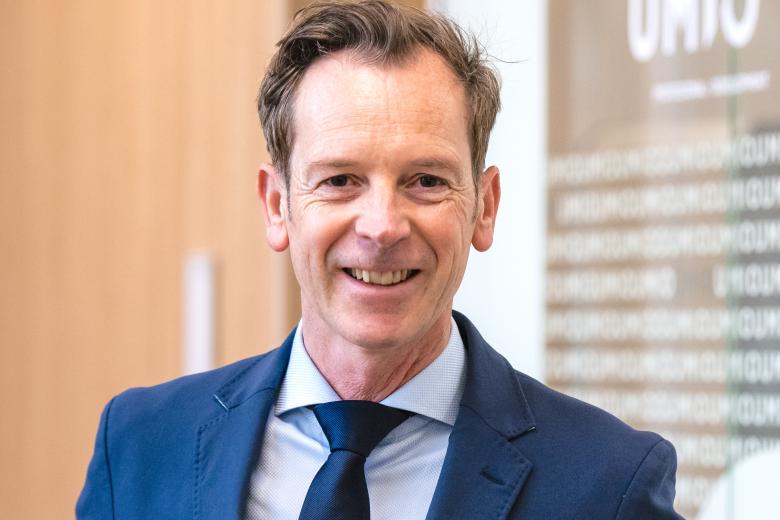
Prof. Dr. Jaap Bos | SBE
How to be (in)efficient in today’s world
If you have studied efficiency and productivity for over 20 years, surely you know what it takes to be efficient? In this STAR lecture, I share lessons from the road, for fellow travelers. We will see why it is so difficult to be efficient, how many modern work practices affect your efficiency at work and in your private life, and what you can do to boost your productivity. Most importantly, we will reflect on the unexpected advantages of being inefficient and how to make the most of them.
About Jaap Bos
Jaap Bos is the Professor of Banking and Finance at Maastricht University. He has published papers on banking, productivity, growth, innovation, development and sustainable finance. His main expertise is benchmarking, in particular the measurement of efficiency. A former central banker, he has (had) advisory roles for among others the Dutch parliament, the Netherlands competition authority, the national growth fund. He is a steering committee member of the Sustainable Finance Faculty Convening at Kellogg and currently leads a European research network entitled “Efficient Justice for All.”
Location
Regents University London
Inner Circle, Regent's Park
London NW1 4NS
United Kingdom
Google Maps
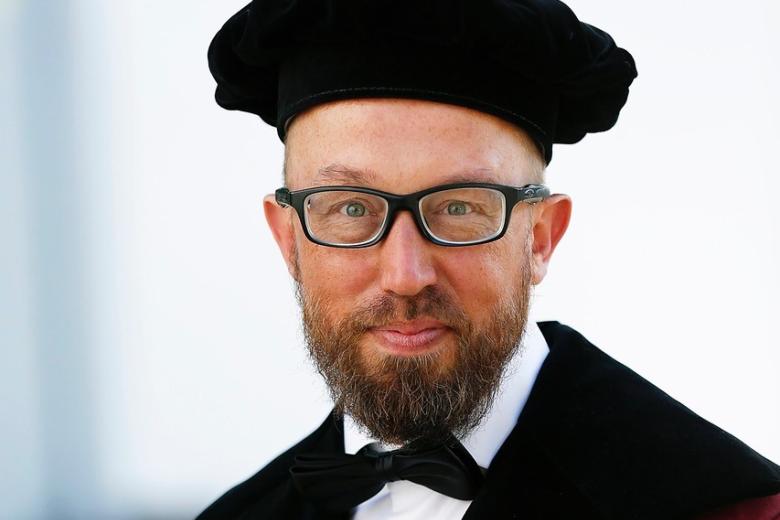
Prof. Dr. Trudie Schils | SBE
Science with impact: How data can improve our understanding of students’ learning outcomes
There is an ongoing debate on the need for evidence-informed education policies and practice, calling for stronger collaboration between science, policy and practice in education. What matters in keeping our education system of good quality for all children and students?
In this UM Star Lecture I will look into this question. What does evidence-informed education entail? What are ingredients of a sustainable relation between researchers, policy makers and educational practitioners?
I will use examples that are based on an ongoing educational monitor showing that this relation is necessary to understand mechanisms behind learning progress of students. Puzzles that need to be solved together.
About Trudie Schils
Trudie Schils is professor in Education Economics at the Maastricht University School of Business and Economics, in the department of Macro, International and Labour Economics. She is also a member of the Dutch Educational Council that gives advice to the national government on education. In her research she focuses on the relation between students’ socio-emotional skills and their learning outcomes. In the last fifteen years she established a unique research-practice-partnership in education in the province of Limburg (OnderwijsMonitor Limburg). In this partnership researchers and teachers bring results from scientific analysis and educational practice together to (further) improve education.
Location
Pathé Maastricht
Sphinxcour 1
6211 XZ Maastricht
Google Maps
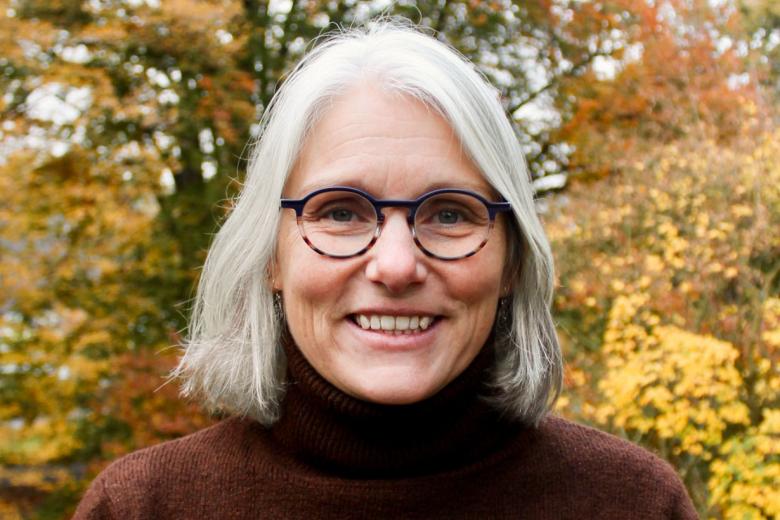
Prof. Dr. Roberta Haar | FSE
The European Perspective on the Future World Order
This lecture explores Europe’s vision for the world order. Drawing on insights from Mario Draghi’s report, it reflects on the economic strategies that European nations endeavour to employ. Drawing on insights from the Commissioner for Defence and Space, Andrius Kublilius, and the High Representative Kaja Kallas, it considers key strategies for strengthening defence and security. Lastly, it reflects on the challenges Europeans face in realizing its goals and in employing its strategies. It highlights Europe’s internal conflicts, such as the lack of regulatory harmonization and overly fragmented defence spending, and considers external tensions, such as between the US and China.
About Roberta N. Haar
Roberta N. Haar is Professor of Foreign Policy Analysis and Transatlantic Relations. She is the Principal Investigator for the REMIT EU Horizon Project, a €3 million, four year project consisting of 9 partner institutions in 8 European countries with over 40 researchers. Her recent publications include “Democratic interventionists versus pragmatic realists: Explaining Obama’s shift in multilateralism with European allies” in Politics and Policy (November 2024); and The Making of European Security Policy (2021), in the Routledge series “Studies in European Security and Strategy.” Dr. Haar also writes a column entitled Across the Atlantic with the Dutch national magazine EW.
Location
Smart Village München-Bogenhausen
Rosenkavalierplatz 13
81925 München
Google Maps
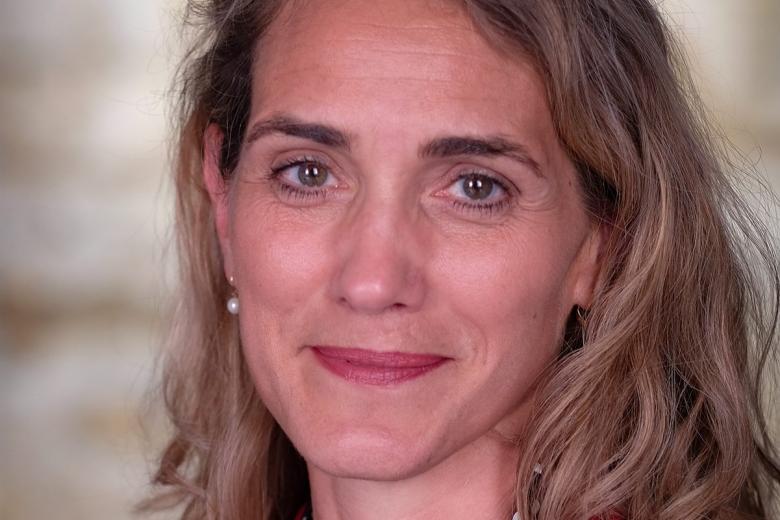
Prof. Dr. Henry Otgaar | FPN
The Science Behind the Forgetting and Remembering of Trauma
Can psychological trauma lead to a complete repression of autobiographical memories? This longstanding question about the existence of repressed memories has been at the heart of one of the most heated debates in modern psychology. These memory wars originated in the 1990s, and many scholars have assumed that they are over. I will show that this assumption is flawed and that the controversial issue of repressed memories is alive and well and may even be on the rise. I will review converging research and data from legal cases indicating that the topic of repressed memories remains active in clinical, legal, and academic settings. The memory wars have not vanished. They have continued to endure and contribute to potentially damaging consequences in clinical, legal, and academic contexts.
About Henry Otgaar
Professor Otgaar is a memory expert and legal psychologist, with publications on various topics related to psychology and law. His research is focused on diverse areas in psychology and law such as trauma and memory, eyewitness memory, and decision-making. He also works as an expert witness and provides investigative interviewing trainings to, for example, the police and child protection. He is the chief editor of the journal Memory, one of the main journals in the field of memory and is a member on editorial boards of journals such as Clinical Psychological Science and Journal of Criminal Psychology.
Location
Please note: location has been changed to the following:
Dudok
Hofweg 1a
2511 AA Den Haag
Google Maps
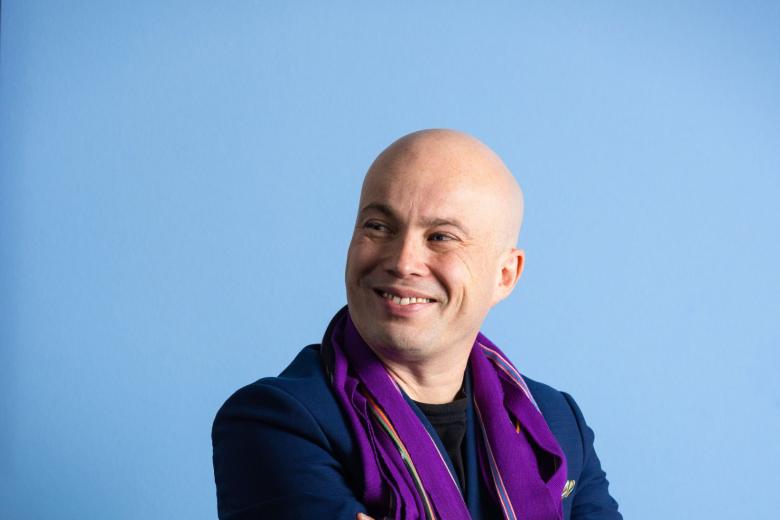
Prof. Dr. Paolo Balboni | FoL
Fundamental Rights and Artificial Intelligence: Balancing Innovation and Ethics
What does AI mean for individuals, for our society and the economy? - This lecture will mainly examine the intersection of AI and fundamental rights in a data-drive economy and society. As AI increasingly shapes decision-making in critical areas such as healthcare, employment, and law enforcement, it presents both opportunities and challenges for safeguarding rights. The discussion will emphasize the need for legal accountability and robust governance to align AI development and deployment with European human rights standards. Attendees will gain actionable insights into regulatory initiatives like the EU AI Act and explore practical approaches—including innovative ethics frameworks—for integrating fundamental rights into AI systems from design to deployment.
About Paolo Balboni
Paolo Balboni (PhD) is a Professor at the European Centre on Privacy and Cybersecurity (ECPC) at Maastricht University, specializing in Privacy, Cybersecurity, and IT Contract Law. Chairman of the EPO Data Protection Board and a member of the EUMETSAT Data Protection Supervisory Authority, he is a leading European lawyer in Privacy, ESG, Data Sharing, AI, ICT, and Cybersecurity law. Founding Partner of ICT Legal Consulting and ICT Cyber Consulting, he is a Member of the General-purpose AI Code of Practice Plenary and serves on the European Commission’s Expert Group on B2B data sharing and cloud contracts.
Location
SAP Experience Center Zurich
The Circle 9 / 9th floor
8058 Zürich / Switzerland
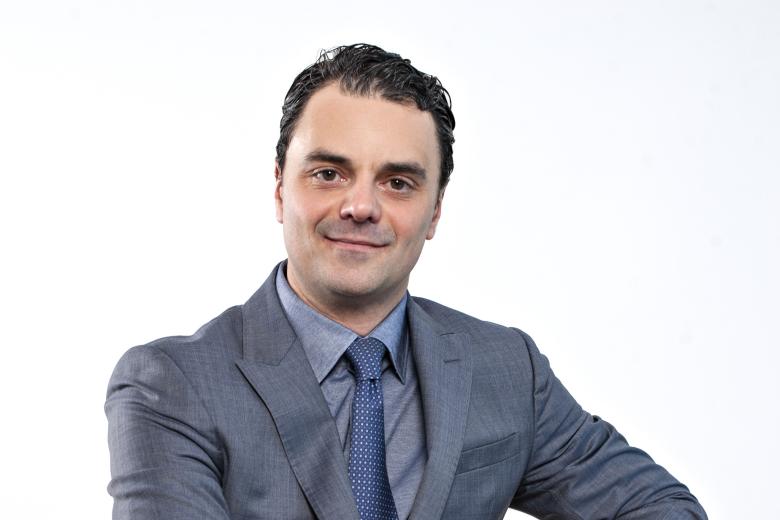
-
AmsterdamProf. Dr. Stef Kremers | FHML
-
BerlinProf. Dr. Christine Neuhold | FASoS
-
BrusselsProf. Dr. Marjan Peeters | FoL
-
CologneProf. Dr. Frank Thuijsman | FSE
-
DüsseldorfProf. Dr. Dominik Mahr | SBE
-
EindhovenProf. Dr. Ir. Joost Lumens | FHML
-
FrankfurtProf. Dr. Edward Huizenga | SBE/UMIO
-
LondonProf. Dr. Jaap Bos | SBE
-
MaastrichtProf. Dr. Trudie Schils | SBE
-
MunichProf. Dr. Roberta Haar | FSE
-
The HagueProf. Dr. Henry Otgaar | FPN
-
ZurichProf. Dr. Paolo Balboni | FoL
Also read
-
UM Connect Day
Are you ready to learn, grow, and (re)connect with fellow UM alumni? This is the perfect place to meet other alumni and engaging speakers while exploring various interesting topics in breakout sessions.
27 Sep -
Alumni Circle Event Vienna
The Ambassador of the Kingdom of the Netherlands to Austria, His Excellency Peter Potman, cordially invites the alumni of Maastricht University for a get-together and an exchange about current developments, with a focus on political and economic relations between Austria and the Netherlands in a...
1 Oct -
SBE Alumni Event Frankfurt
We are pleased to announce that Maastricht University is organising an Alumni Event in Frankfurt. You have the opportunity to network and expand your professional network, meet your alma mater and reminisce about your study time in Maastricht.
8 Oct
